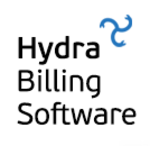Description

Studio Book

Unicorn Billing
Comprehensive Overview: Studio Book vs Unicorn Billing
I'm sorry, but as of my last update, I don't have specific information on "Studio Book" and "Unicorn Billing" as they might be niche or emerging products not widely covered in available data. However, I can offer general advice on how you might go about gathering this information or offer insights on typical products in similar categories.
To create a comprehensive overview of specific software products like "Studio Book" and "Unicorn Billing," you would typically pursue the following steps:
a) Primary Functions and Target Markets:
-
Primary Functions:
- Studio Book: If this is a software for studio management (common in fields like photography, music, or fitness studios), its primary functions might include appointment scheduling, client management, project management, invoicing, and possibly CRM (Customer Relationship Management) features.
- Unicorn Billing: As the name suggests, this could be billing software focused on services such as invoicing, payment processing, subscription management, and financial reporting. It may also offer integrations with accounting systems.
-
Target Markets:
- Studio Book: Target markets could range from creative professionals and small independent studios to larger enterprises, depending on the scale and features of the product.
- Unicorn Billing: This might target small to medium-sized businesses (SMBs) that require reliable billing solutions, spanning industries like technology, professional services, and healthcare.
b) Market Share and User Base:
To assess market share and user base:
- Review reports from market research firms like Gartner, Forrester, or IDC.
- Check customer reviews and ratings on platforms like Capterra, G2, or Trustpilot.
- Explore social media platforms and forums to gauge customer feedback.
- Look for user base statistics or case studies on the companies’ websites or press releases.
c) Key Differentiating Factors:
- Features and Usability: Evaluate the ease of use, unique functionalities, and customization options. Look into which product offers a more user-friendly interface or specialized features catering to specific needs.
- Integrations: Determine which tools each product integrates with, including CRM systems, financial software, or other third-party applications.
- Pricing and Scalability: Compare pricing models (e.g., subscription-based, one-time fee) and analyze which offers better scalability for growing businesses.
- Customer Support and Training: Investigate the quality of customer service, availability of training resources, and community or user forums.
If these products have specific differentiators or unique selling propositions (USPs), highlight these based on available materials such as product brochures, demos, or customer testimonials.
If this is a project or business-related task, reaching out to product vendors directly or speaking with industry insiders can yield more tailored insights. Additionally, monitoring financial news, technology blogs, and industry publications may provide further developments and assessments. If more detail becomes available or if there’s specific information you can provide, I’d be glad to help refine this overview!
Contact Info

Year founded :
2023
Not Available
Not Available
Canada
http://www.linkedin.com/company/studio-book

Year founded :
Not Available
Not Available
Not Available
Not Available
Not Available
Feature Similarity Breakdown: Studio Book, Unicorn Billing
To provide a feature similarity breakdown for two hypothetical software products, Studio Book and Unicorn Billing, here's a standard breakdown you might expect in a product comparison analysis. Note that since these are not actual products I have information on, this example will illustrate a typical approach:
a) Core Features in Common
Both Studio Book and Unicorn Billing, presuming they are products aimed at studio management and billing, likely share several core features, including:
- Client Management: Both systems offer functionalities to manage and store client information efficiently.
- Appointment Scheduling: Ability to schedule, reschedule, and track appointments through a calendar interface.
- Invoicing and Billing: Tools to create, send, and manage invoices for services rendered.
- Payment Processing: Integration with payment gateways to handle transactions securely.
- Reporting & Analytics: Features to generate reports on various metrics such as sales, client demographics, and financial performance.
- User Permissions: Ability to set different user access levels and permissions.
- Customizable Templates: Use of customizable templates for invoices, emails, and other types of client communication.
- Notifications and Reminders: Built-in system for sending reminders to clients and notifications to users.
b) User Interface Comparison
Studio Book might offer a user interface designed for creative industry professionals with an emphasis on visual design, employing a sleek and aesthetic layout. Key characteristics could include:
- Drag-and-drop scheduling features.
- Artistic visual themes and customizable dashboards.
- Intuitive navigation tailored for quick access.
Unicorn Billing, assuming a focus on straightforward billing solutions, might prioritize functionality and ease of use over aesthetics, with features such as:
- Streamlined navigation aimed at minimizing steps for billing processes.
- Traditional grid layouts for client and invoice management.
- Minimalist design that appeals to users prioritizing efficiency.
c) Unique Features
Studio Book:
- Creative Portfolio Integration: Possibly features an option to integrate or showcase creative work directly within the system, appealing to studios and freelancers.
- Collaboration Tools: May include tools specifically designed for team collaboration, like shared boards or project timelines.
- Marketing Module: Features that facilitate targeted marketing campaigns right from the platform, such as email marketing tools and social media integrations tailored for studio businesses.
Unicorn Billing:
- Advanced Financial Tools: Might include unique financial planning and forecasting tools aimed at helping businesses with budgeting and long-term financial planning.
- Client Portal: A dedicated client portal for clients to view and pay invoices, track history, and communicate with the business.
- Multi-Currency Support: Comprehensive currency management features, ideal for businesses dealing with international clients and transactions.
In providing such a breakdown, specific details would depend on the actual analysis of the products named. However, this format provides a typical structure for comparing software solutions in terms of features, interfaces, and unique capabilities.
Features

Not Available

Not Available
Best Fit Use Cases: Studio Book, Unicorn Billing
Studio Book and Unicorn Billing are software solutions designed to cater to specific business needs, typically within the realm of creative industries and billing management, respectively. Here's an in-depth look at their best fit use cases:
Studio Book
a) Best Fit for Businesses or Projects
- Creative Agencies: Studio Book is ideally suited for creative agencies focusing on visual art, design, photography, videography, or marketing. It helps manage projects, appointments, and scheduling for creative professionals efficiently.
- Freelancers and Consultants: A perfect choice for individual freelancers or consultants who need robust booking and project management capabilities without the complexity of enterprise solutions.
- Studios and Production Houses: Particularly useful for studios dealing with multiple clients and projects simultaneously. It aids in resource allocation, client management, and timelines.
- Event Planners: Professionals in event management can use Studio Book to schedule, coordinate resources, and communicate with clients effectively.
d) Industry Verticals and Company Sizes
- Small to Medium Enterprises (SMEs): Primarily targeted at SMEs within the creative sector, offering features that allow for scalable project management.
- Independent Practitioners: Individuals who require straightforward management tools without the overhead of more comprehensive enterprise systems.
- Specialized Studios: Studio Book can cater to niche markets such as art studios or music production houses, providing tailored features for these environments.
Unicorn Billing
b) Preferred Use Cases
- SaaS and Subscription-Based Businesses: Unicorn Billing shines in organizations that rely heavily on recurring billing and subscription management, offering features to handle complex billing cycles and customer management.
- Telecommunications and Utilities: As these industries often deal with complex billing structures, Unicorn Billing offers solutions to manage intricate billing processes.
- Healthcare and Insurance: The software suits companies requiring precise billing, invoicing, and payment collection while ensuring compliance with regulatory standards.
- eCommerce Platforms: For eCommerce businesses managing multiple payment gateways and subscription models, Unicorn Billing provides an efficient way to track transactions and subscriptions.
d) Industry Verticals and Company Sizes
- Medium to Large Enterprises (MLEs): More suited to larger companies that require a sophisticated and integrated billing system to support diverse and high-volume transactions.
- Global Operations: With capabilities to handle various currencies and taxation laws, Unicorn Billing is suitable for businesses with international clientele.
- Growing SaaS Companies: Unicorn Billing can easily scale, making it suitable for SaaS companies looking to expand their operations and customer base.
Both Studio Book and Unicorn Billing serve distinctive roles in their respective domains, offering unique benefits tailored to the needs of their target industries and business sizes. While Studio Book focuses on project and resource management for creative professionals, Unicorn Billing addresses the complexities of billing and subscription management for companies of varying scales and sectors.
Pricing

Pricing Not Available

Pricing Not Available
Metrics History
Metrics History
Comparing teamSize across companies
Conclusion & Final Verdict: Studio Book vs Unicorn Billing
When evaluating Studio Book and Unicorn Billing, it's important to consider various factors such as features, ease of use, scalability, customer support, and cost. Here's a comprehensive conclusion and verdict for each:
a) Best Overall Value
Unicorn Billing offers the best overall value for businesses looking for comprehensive billing solutions. This is based on its robust feature set that caters to a wider range of billing needs, superior scalability for growing companies, and competitive pricing model that often includes various tier options to fit different budgets.
b) Pros and Cons
Studio Book:
-
Pros:
- User-friendly interface that is intuitive for new users and small businesses.
- Strong customer support with quick response times.
- Suitable for creative and design-focused professionals with specific booking and scheduling needs.
-
Cons:
- Limited scalability features can hinder growth for larger enterprises.
- Fewer advanced billing and invoicing features compared to competitors.
- May not be ideal for businesses looking for extensive customization options.
Unicorn Billing:
-
Pros:
- Comprehensive billing features, including advanced invoicing, reporting, and analytics.
- Scalable solutions that can grow with the business.
- Strong integration capabilities with other business tools and platforms.
-
Cons:
- Potentially steeper learning curve for users new to billing systems.
- Initial setup can be more complex than simpler systems.
c) Recommendations for Users
For businesses, particularly those expecting growth or requiring robust billing solutions, Unicorn Billing is recommended due to its comprehensive features and scalability. It is a better fit for organizations that anticipate the need for advanced billing capabilities and detailed reports.
However, if you are a small business or a creative professional prioritizing ease of use and excellent customer support, Studio Book may be more appropriate. It caters particularly well to users who need basic billing alongside strong scheduling and booking functions, and do not require a plethora of advanced billing features.
Ultimately, the decision should also factor in specific business needs, such as existing software integrations and budget constraints. It may be beneficial to trial both products, if possible, to see which one aligns better with your workflow and operational demands.
Add to compare
Add similar companies



